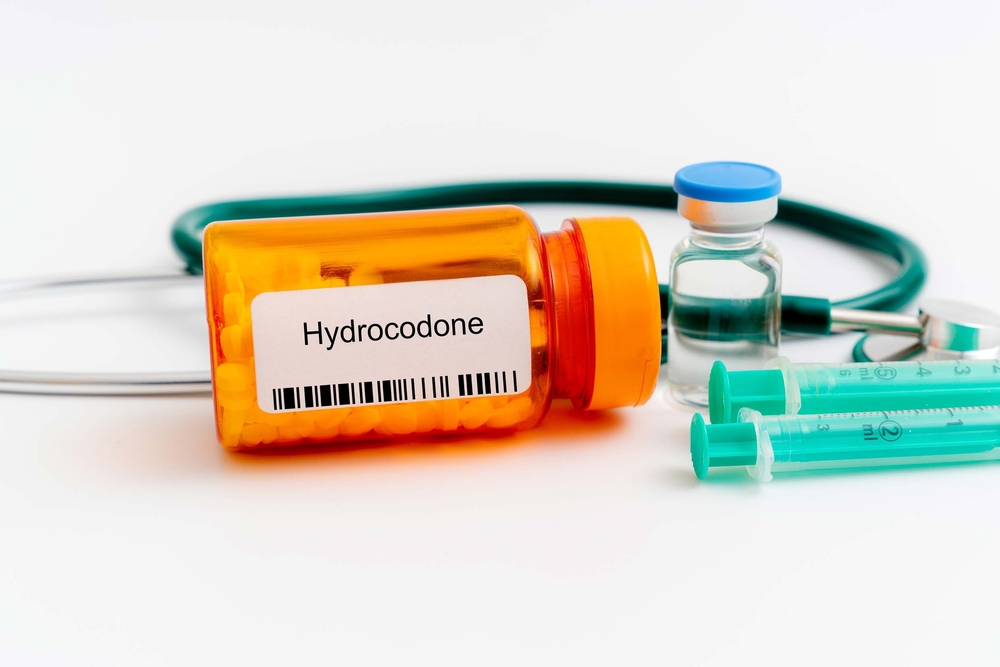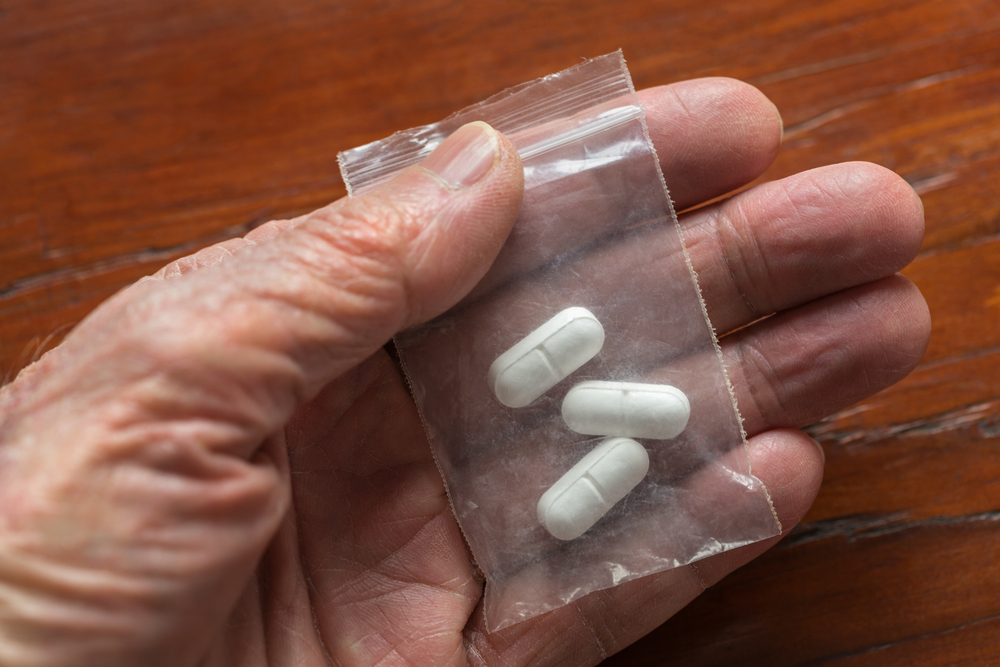Last Updated:
May 16th, 2025
Hydrocodone Addiction | Signs, Effects and Causes
Hydrocodone is one of the world’s most widespread medicinal opioids, prescribed to around six million people each year for its effective pain relief. However, this easy availability can also bring accidental misuse and intentional abuse, both of which can lead to hydrocodone addiction. If hydrocodone addiction is impacting you or someone you know, a better understanding of the symptoms, consequences, and treatment options could save a life.

What is hydrocodone?
Hydrocodone is an opioid medication that originates from hydrocodone, an extract of the opium poppy. It interacts with opioid receptors in the brain to produce effects similar to morphine. Hydrocodone’s main use is in managing moderate to severe pain, particularly where alternative treatments have not been effective. Hydrocodone is also sometimes used as a cough suppressant in certain medicines and is frequently found in combination with analgesics like ibuprofen or paracetamol.
Common hydrocodone-containing medicines include:
- Vicodin
- Norco
- Lorcet
- Zydone
- Vicoprofen
- Ibudone
- Tussionex
- Hycomine
- Hysingla
- Zohydro
How does hydrocodone work?
Hydrocodone acts on the central nervous system, specifically targeting areas in the brain and spinal cord that deal with pain. It hooks onto mu-opioid receptors, which are the same parts that respond to endorphins, which are the body’s own painkillers. When hydrocodone attaches to these receptors, it reduces how much pain you feel by lowering the strength of pain messages sent to your brain.
However, besides managing pain, hydrocodone can also make you feel really happy and relaxed. This can lead people to take hydrocodone to get high or even to try and medicate stress or mental health problems without seeing a doctor. This misuse massively increases the risk of hydrocodone side effects, including:
- Lightheadedness
- Drowsiness
- Nausea
- Constipation
- Skin rashes and itching
- Hydrocodone addiction
These risks have led to hydrocodone being named a Class-A drug in the UK, with some combinations banned outright and many British doctors against prescribing even those which are available.
What is hydrocodone addiction?
Hydrocodone addiction affects the brain’s natural reward system, making you want to use the drug even when it is having negative effects. It usually develops from frequent, heavy use that leads to tolerance, meaning you need an increased dose to escape pain or experience a high.
This keeps your body saturated with hydrocodone, making your brain dependent on it for everyday functioning. If you try to quit or even just cut down, your brain reacts with panic, leading to intense hydrocodone withdrawal symptoms. These can include gastrointestinal discomfort, headaches, trouble sleeping, anxiety and potentially serious symptoms like seizures and depression.
At the same time as developing physical dependence, you can also develop psychological dependence. This means you can’t cope with daily life without hydrocodone, which, alongside withdrawal avoidance, locks you in a cycle of hydrocodone abuse.
Spotting the warning signs of hydrocodone addiction
Hydrocodone addiction doesn’t usually start with a sudden realisation but creeps in with subtle changes that are easy to overlook. If you notice any of these hydrocodone addiction symptoms, it might be time to get help before they escalate into severe issues:
- Using hydrocodone not for pain but because it makes you feel good.
- Your money and time is increasingly spent on getting more hydrocodone.
- Your daily responsibilities take a backseat to your hydrocodone use.
- Your relationships suffer because of how much you use hydrocodone.
- Stopping hydrocodone causes you to feel physically ill.
- The same amount of hydrocodone is not having the same effect anymore.
- Mixing hydrocodone with other things to get a stronger effect.
- Lying to your family, friends and doctors about how much hydrocodone you are using.
- Continuing hydrocodone use despite the clear risks and harms.

These hydrocodone addiction signs and symptoms should be a clear signal for anyone ignoring the reality of their situation. While it may feel intimidating to seek help, the dangers of continuing down the path of addiction are significantly worse.
What causes hydrocodone addiction?
People respond differently to hydrocodone depending on everything from biological makeup to environmental influences. This explains why some people can use hydrocodone without becoming dependent, whereas others may quickly develop an addiction. Some of the factors to understand include:
The mental and physical dangers of Hydrocodone addiction
Like any opioid, hydrocodone is fraught with dangers if not used correctly. Some of the numerous adverse health effects include:
- Markedly reduced consciousness or unconsciousness
- Extremely small, pinpoint pupils
- Severely slowed breathing
Immediate medical intervention is crucial if these symptoms appear or if seizures or muscle spasms occur following hydrocodone use.
How to overcome hydrocodone addiction
Opioid detox is the first important part of getting better from hydrocodone addiction. In detox, your doctor will help you cut down on hydrocodone little by little. This slow process is called tapering, and during this time, you may receive methadone to replace hydrocodone and help make withdrawal as easy as possible.
But detox is just the beginning. After that, you will need to explore why you started using hydrocodone in the first place and why you can’t stop taking it. This is all done through opioid rehab, which is available either through the NHS or a private recovery clinic. Both will provide addiction therapy, but staying at a residential rehab centre is usually seen as the best approach as it helps you focus fully on recovery.
How to get help for hydrocodone addiction
If hydrocodone addiction is impacting you or someone you know, starting the recovery journey as soon as possible is crucial. At Addiction Helper, we work with you to find a programme that suits your recovery needs easily. Reach out to us today to see what support options are available for you.
Our compassionate team are ready and available to take your call, and guide you towards lasting the lasting addiction recovery you deserve.
Frequently Asked Questions
(Click here to see works cited)
- DrugBank. “Hydrocodone: Uses, Interactions, Mechanism of Action.” DrugBank, https://go.drugbank.com/drugs/DB00956. Accessed 17 January 2025.
- GOV.UK. “Over-the-counter painkillers containing codeine or dihydrocodeine.” GOV.UK, 11 December 2014, https://www.gov.uk/drug-safety-update/over-the-counter-painkillers-containing-codeine-or-dihydrocodeine. Accessed 17 January 2025.
- Cassidy, Theresa A et al. “Patterns of abuse and routes of administration for immediate-release hydrocodone combination products.” Pharmacoepidemiology and drug safety vol. 26,9 (2017): 1071-1082. doi:10.1002/pds.4249. Accessed 17 January 2025.
- Cofano S, Patel P, Yellon R. Hydrocodone. [Updated 2024 Feb 29]. In: StatPearls [Internet]. Treasure Island (FL): StatPearls Publishing; 2025 Jan-. Available from: https://www.ncbi.nlm.nih.gov/books/NBK537288/. Accessed 17 January 2025.

